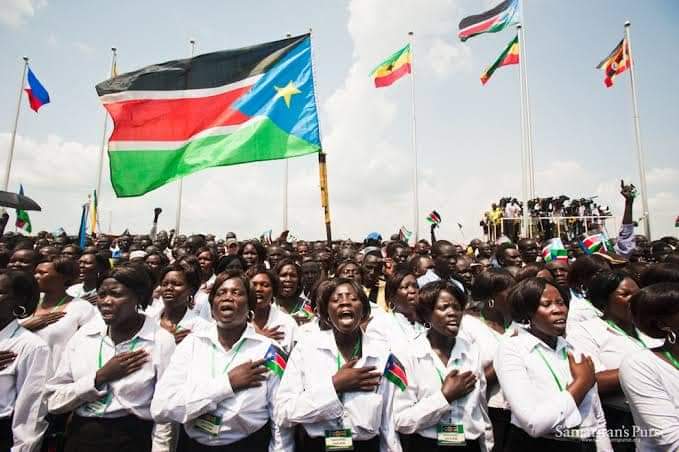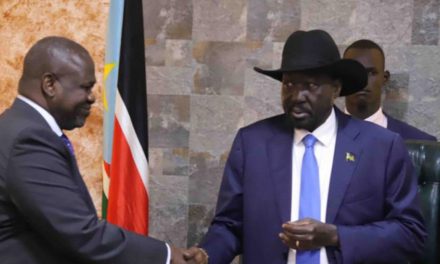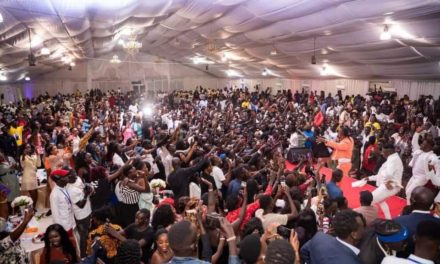
Eight years on, families demand justice for the 2013 massacres

By Winnie Cirino.
JUBA, SOUTH SUDAN: 24th, Dec 2021: It has been eight years since conflict broke out in Juba on December 15th, 2013 between forces loyal to President Salva Kiir and those loyal to his deputy, then opposition leader Riek Machar.
In August 2015, the parties reached an agreement but did last as fresh fighting broke out in July 2016.
Some relatives of the victims of the conflict that broke out in Juba are calling on the government to ensure the victims and their families receive justice.
A Juba resident, who prefers to only be identified as Chan for fear of reprisals from the government and other communities, says he lost five family members the day the conflict broke out. Chan says he has found it difficult to forget the relatives he lost.
“It was a tough moment at that time,”
“we have been in that situation as a family. We were targeted, we ran to UNMISS, so from UNMISS, we ran up to that side of our country. All of them [victims] were civilians, they were not soldiers.” Chan revealed.
One of his uncles was a student at the University of Juba at the time, he too was ‘definitely killed because he was a Nuer.’ Two of his brothers, also students, were murdered as well in 2013.
“I am not happy that’s why we say we can’t forget this day but we can forgive,” he added.
All five of Chan’s relatives were killed in cold blood, including some of his friends. He says he misses them dearly.
Chan hopes the perpetrators shall someday be brought to book for the crimes they committed against innocent civilians. This, he says, would show that some justice has been served.
“Justice should take place because if something happens, the law should not be taken into hands, so the ones that shade the blood of those relatives should be held accountable.”
“We the relatives should be happy, if we see that justice took place, reconciliation and forgiveness should also be major process that should follow the justice because if we leave them like this, we could not feel happy because it is not easy when you see someone that killed your relative or your brother and is still moving.” Chan says, calling on the government to establish a court to handle such cases.
To Chan, it’s important that authorities focus on restoring peace and reconciling communities by bringing all stakeholders, including victims, to a roundtable discussion so that people accept their mistakes and move on as a nation.
Riot Gatlong is a Juba resident who lost three relatives on the 15th of December 2013. He says this is a day he feels members of his community were targeted to be killed and raped, something he says he still feels sad about.
“I don’t feel like to call for the war again, so let the past be the past, so we need peace in this country so that we can live in peace, and unity, the young South Sudanese can live in peace and harmony, so we need hospitality among the youth of South Sudan, but the problem is that there are people who are coming; the people for peace, they don’t implement the peace that we want.” Gatlong said.
Lam Akol, head of the National Democratic Movement, a member of the umbrella opposition group South Sudan Opposition Alliance, says 15th December is a black day in South Sudan’s history as armed people went door to door hunting people just because of their ethnicity, while other nationalities were killed in revenge attacks, something he says should never be repeated.
Akol says for South Sudan not to return to the same kind of war, the country’s leadership should follow the peace agreement, especially the chapter covering truth and reconciliation.
“The first aspect of admission of guilt and peace healing needs to be the basis of reconciliation, if we do that we can reconcile as a country, not to repeat the atrocities that have been committed.”
Chan says only when peace is restored across the country will relatives of victims be able to forget the terrible things that occurred on December 15th and move on with their lives. Chan calls on the government to allow massive mourning every 15th of December for people to grieve for the love of their lost one who died innocently.
“The judiciary part of it is very important, there must be accountability, and then the other component which is the hybrid court must also be activated so that those responsible for the crime are brought before the law, so nobody should be thinking in future that he can do some atrocities and then can get out of the court free, no.” Chan says.




















Recent Comments